Gustavo Petro has mentioned this week who could be his new enemy.
The president, who now calmly meets with his old rivals —Álvaro Uribe, Rodolfo Hernández, the ranchers— said in a speech that there was still a great enemy that could truncate his ambitious proposal for social and political change.
That new enemy, however, is not in human form.
"The first obstacle to a government is its own interior: its regulations, the procedures built and written through regulations, for decades, by people who belonged to social sectors that are not exactly the ones that have given us victory," Petro said. before a mostly indigenous audience in the department of Cauca.
“There are regulations made by landowners for centuries, there are regulations made by the privileged of the State whom it has enormously enriched, whose surnames appear over and over again in national history.
Rules made by them, at their convenience.
And it's not one, it's not two, that we could easily locate and change them.
There are thousands."
There were other enemies mentioned in the speech—violence, corrupt officials—but none stood out like the new internal enemy.
Then came three readings to this part of his speech.
The first was that the president was really talking about someone in particular, whom he did not want to name, such as the finance minister, José Antonio Ocampo, who does not find it easy to find the money for the reforms.
But the president denied the journalist who shared that version on Twitter: he was not talking about a specific person, he said, but about an accumulation of rules "to defend powerful private interests."
One of his greatest squires, Senator Iván Cepeda, came out to defend him: "Our 'internal enemy' is legal fetishism, the cult of bureaucratic apparatuses, paralyzing formalism."
There are other more complex readings about the new internal enemy of President Petro, the first from the left in Colombia, who understands change not only as a set of legal reforms —as ambitious as they may be— but as a path that combines political will with mass movement.
What Petro fiercely declaimed in Cauca was not an attack on a Minister but an explanation of how his government understands legal fetishism.
Legal fetishism, broadly speaking, is a concept that gained strength in the 20th century and is concerned with an excessive adherence to norms to achieve social change.
In the old version of the left, the laws, explains law professor Julieta Lemaitre, would become "part of the superstructure, the law would emanate from the relations of production, and for that reason it would be neoliberal, formalist, it would defend vested interests."
Legalism would not be a great instrument for change, but rather a facade made by the powerful that prevents seeing the violence head-on and transforming it.
Lemaitre, now a magistrate of the Special Justice for Peace, spoke in this case with EL PAÍS as an academic and author of the book
El Derecho como Conjuro: legal fetishism, violence and social movements
(2009)
.
He explains that this vision of legal fetishism lacked a more structural vision.
“If you believe that the law is made only by power, why do so many people, who do not have access to power, get excited about human rights?
Why do they demand immaterial things like dignity and equal treatment there?
The litigation of women, indigenous or Afro-Colombians in the history of Colombia, for example, has invited mobilization and pointing out injustices.
It is not, from that corner, just a fetish of the powerful.
The laws would be a broader and more complex space than just the playground for the elites.
Every government promises a change, but each government can take very different paths to get there.
A government like Petro's, faithful to its leftist origins, understands social change as the fastest possible way to give citizens access to the means of production and wealth.
A government like that of Juan Manuel Santos (2012-2018), of a liberal nature, understood change more through legal reforms because he understood that "societies change because of individuals, if they are free, and to be free they have to have rights." to defend themselves against those who have power”, explains Lemaitre.
Senator Iván Cepeda, who has become the translator of the president's proposals, explains this difference when he speaks of a country in which there seem to be more lawyers than citizens.
“We want to solve day-to-day problems, and what we are seeing is that things fall into bureaucratic and legalistic inertia.
It is one thing to respect the Constitution and the law, and another to accept that political, social and economic problems must be resolved exclusively through legal means,” Cepeda tells EL PAÍS.
A change that seeks fewer protocols and long discussions in Congress to make transformations.
The rural reform is a good example of how Petro sees change differently from someone like Juan Manuel Santos, who promoted a new legal structure for land restitution in his government.
“There are jurists who try to tell us that we should continue plowing in the desert, that it is better that the land be subject to domain extinction, as if there were a judge who would make those decisions expeditiously, and that does not happen in real life” Cepeda says.
The Petro government has not ruled out the possibility of restitution judges returning land to the displaced.
"We are not going to give up agrarian justice," the senator clarifies.
But in the face of the rush of change, Cepeda and Petro agreed to buy 3 million hectares from ranchers as soon as possible to start the agrarian reform—before waiting for all the judges to rule,
something that could take more than a decade.
“We do not want more legal superstructures.
Without violating the Constitution, what we want is roads to execute”, says Cepeda.
There is a third reading of this new speech by the president.
Esteban Restrepo is a professor of constitutional law at the Universidad de Los Andes and fears that "populist arguments" are being advanced in these speeches if they are placed above the rule of law.
The risk is that the ruler's willingness to change becomes more important than respect for the legal deliberation required by the Constitution and the laws.
“The worrying thing is: if they say they want to make transformations, and that there are laws and procedures that prevent them, what does that lead to?
Establish informal pathways?
Or to make reforms to the laws?
I am concerned that by this means we are going to say that this process of change is so radical that not even the Constitution is of any use to us,” says Restrepo.
“The laws are not perfect, but understanding that implies having a loyalty to the procedures, to deliberate.
If the judges are not ruling [in the land case], wouldn't it be better to reform that justice system?
Change is possible with institutions and yes, it is true that institutions take time to work, but changes take time”.
Gustavo Petro says he doesn't have time.
"We are wasting time, time that I don't have, if this government lacks something, it is time, every second is one second less," said the president in Cauca.
"Why don't we change the history of Colombia in a matter of days and then the next phase of the next five centuries is not one of resistance but of building humanity?"
The changes go to fifth gear in this government, there is no time to go in first gear.
The social urgency for something to change is the great weight that President Petro carries, which would explain why sometimes legalism is understood more as a brake than an accelerator.
But urgency is also a double-edged sword.
A badly discussed legal reform, or a little consulted public policy, can still end up falling in court.
In that case, Petro's true enemy would be his eagerness.
There is one last reading of Petro's new internal enemy, and that is that he fell into the error of his predecessors: understanding Colombia's challenges in terms of friends and enemies.
The report of the Truth Commission, which analyzed the scope of the war, spoke of the importance of dismantling the imaginary of the "internal enemy" that generated decades of violence.
“From the 1960s onwards, the doctrine of the enemy within has been inscribed in the culture,” the report says.
The FARC built the internal enemy in businessmen, the military or paramilitaries saw it in leftist parties.
The president knows well how damaging that imaginary was and his internal enemy, in this case, is not human.
But that did not prevent him from seeking in political discourse, once again, another form of internal enemy.
Subscribe here
to the EL PAÍS newsletter on Colombia and receive all the key information on the country's current affairs.

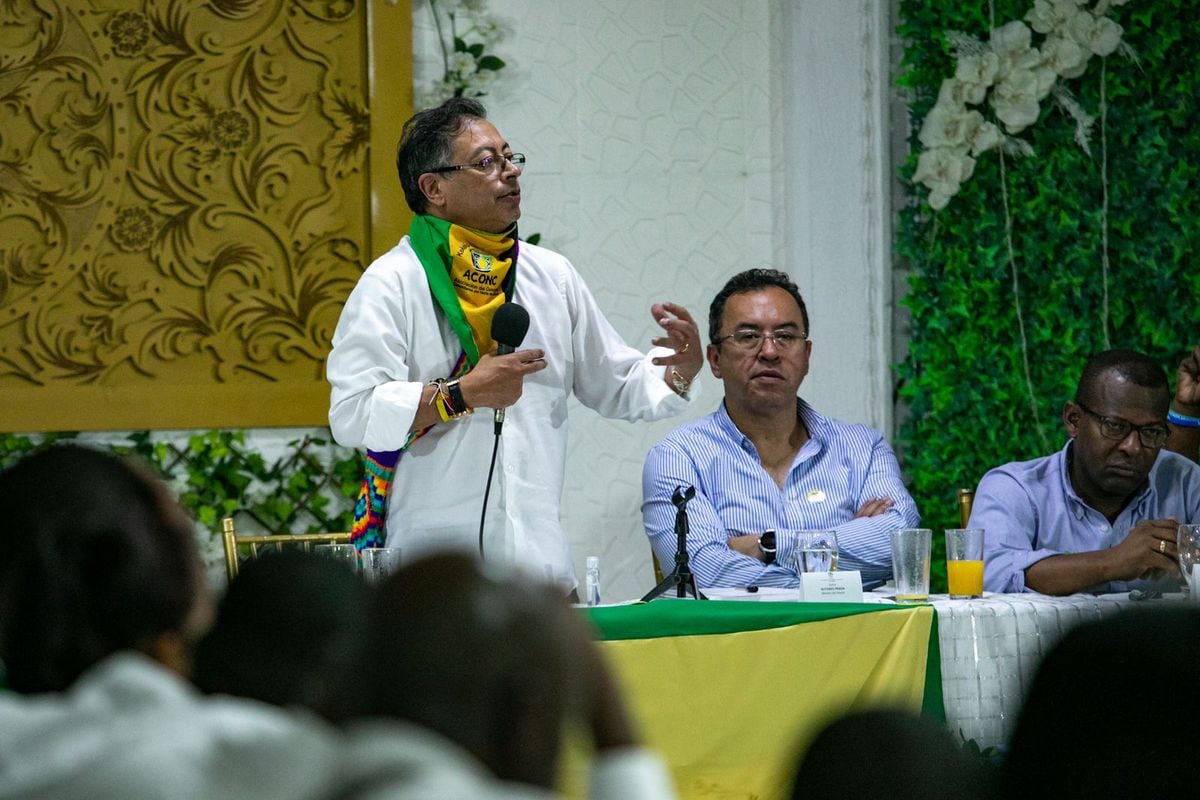
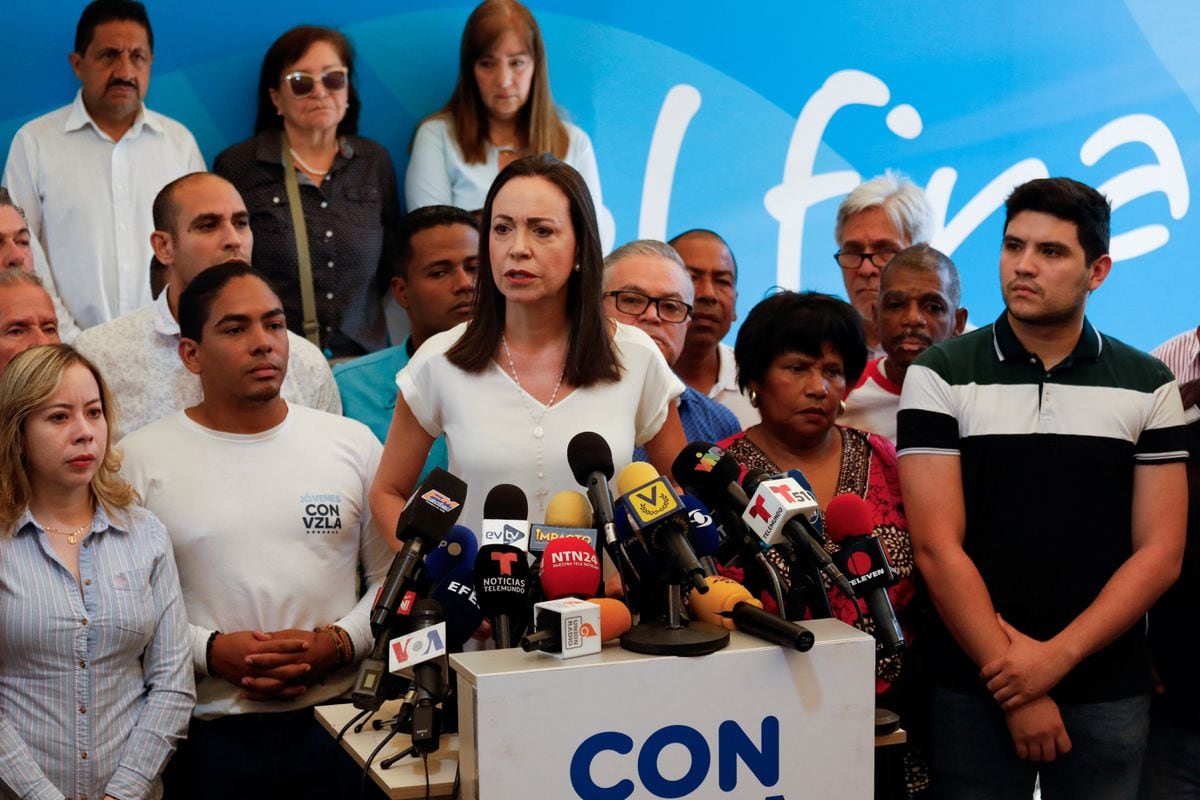
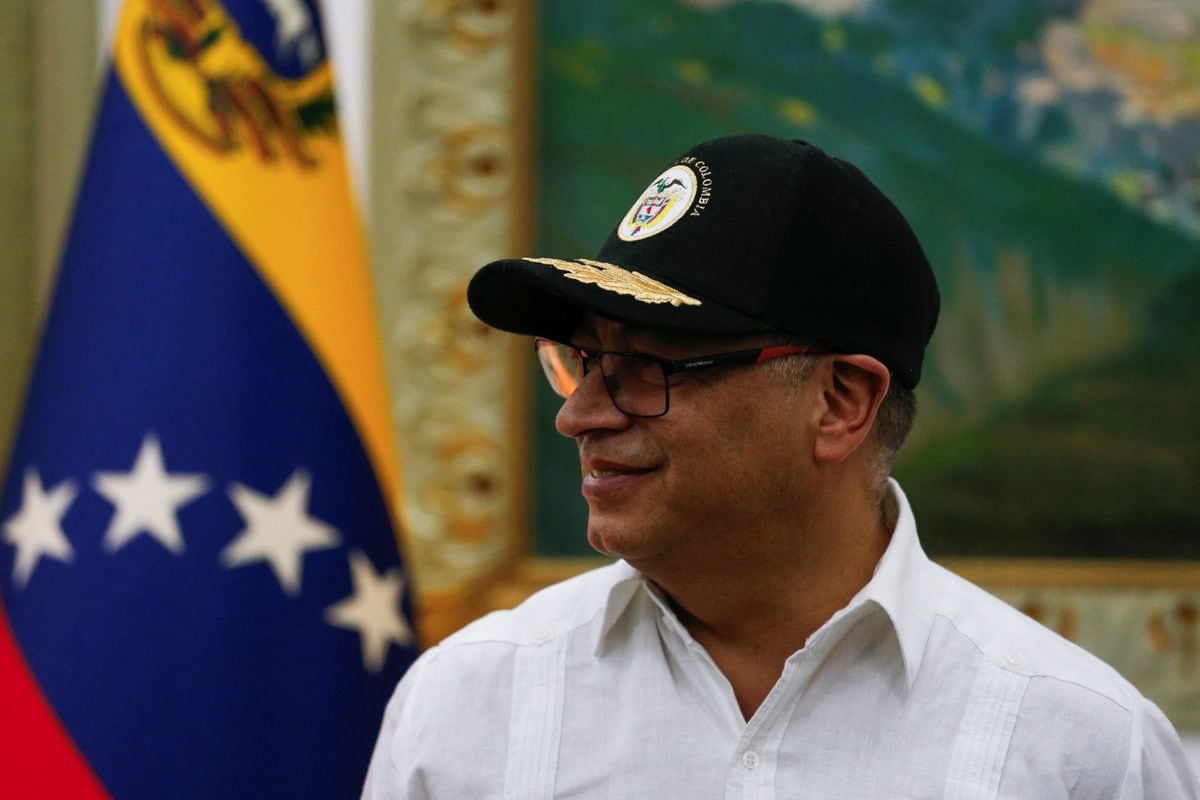
/cloudfront-eu-central-1.images.arcpublishing.com/prisa/EFRVA77BGRH2ZPU376CHIPIX3I.jpg)
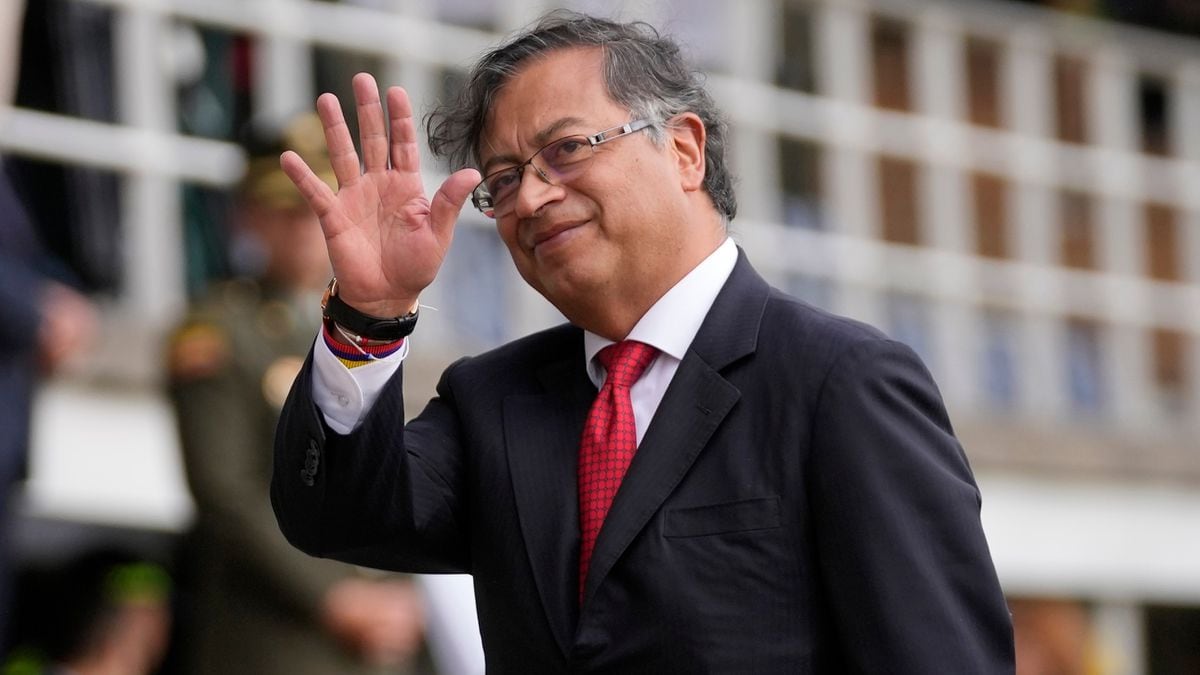
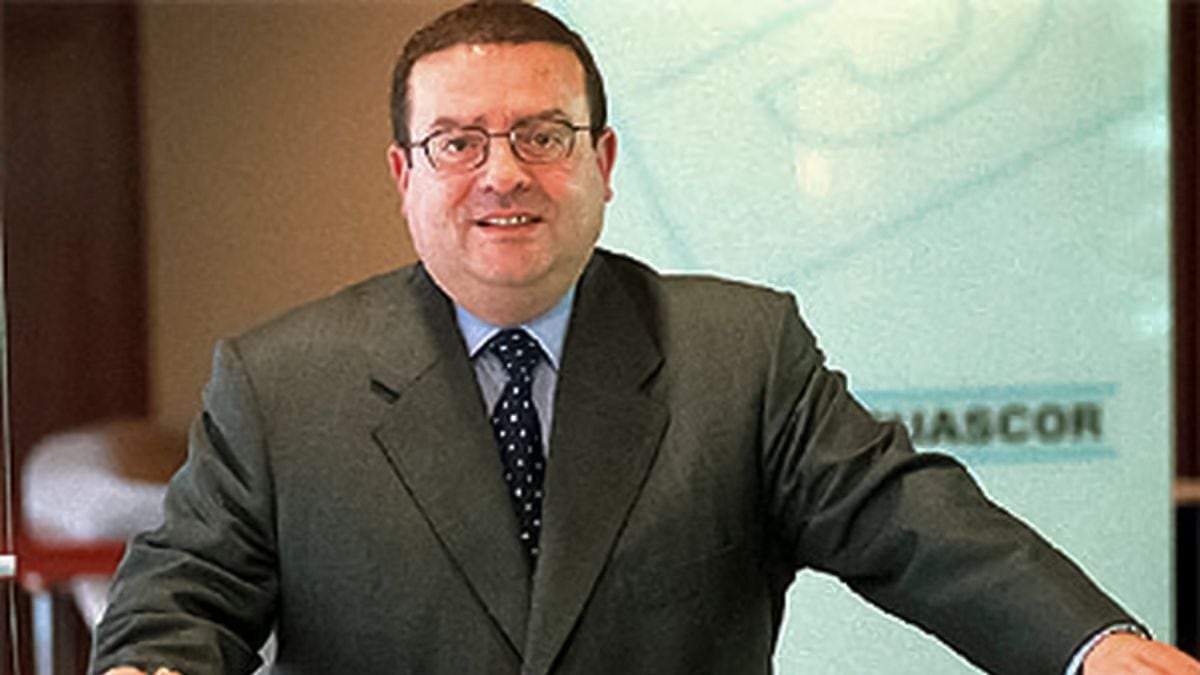
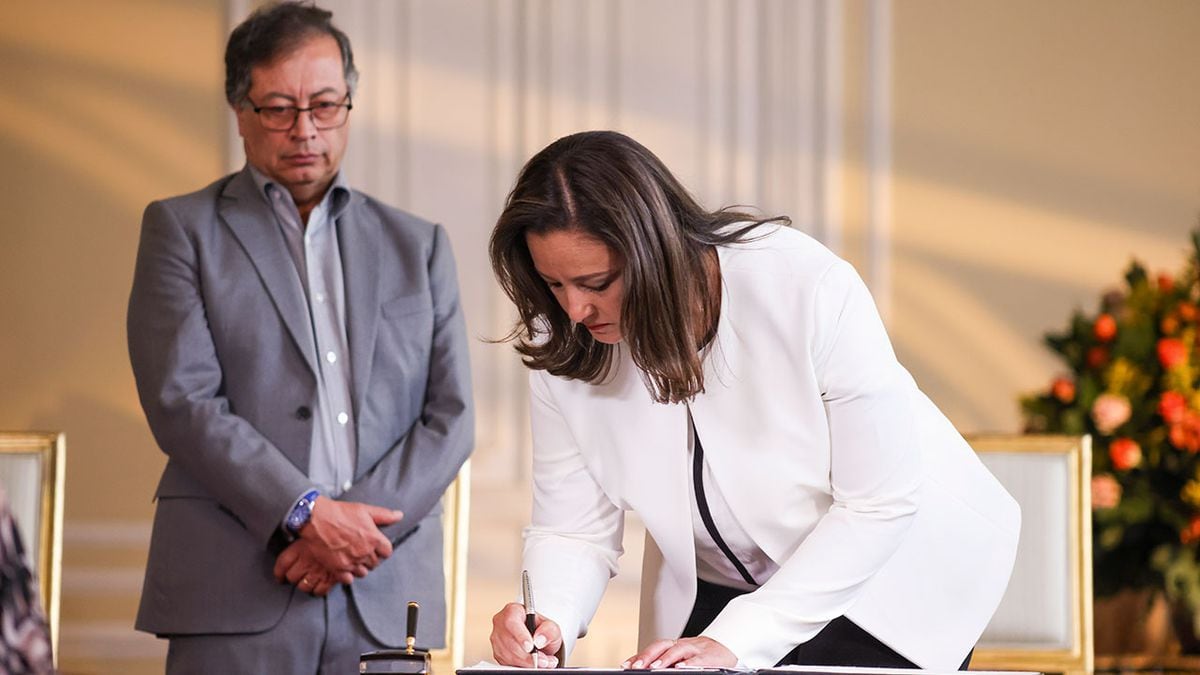

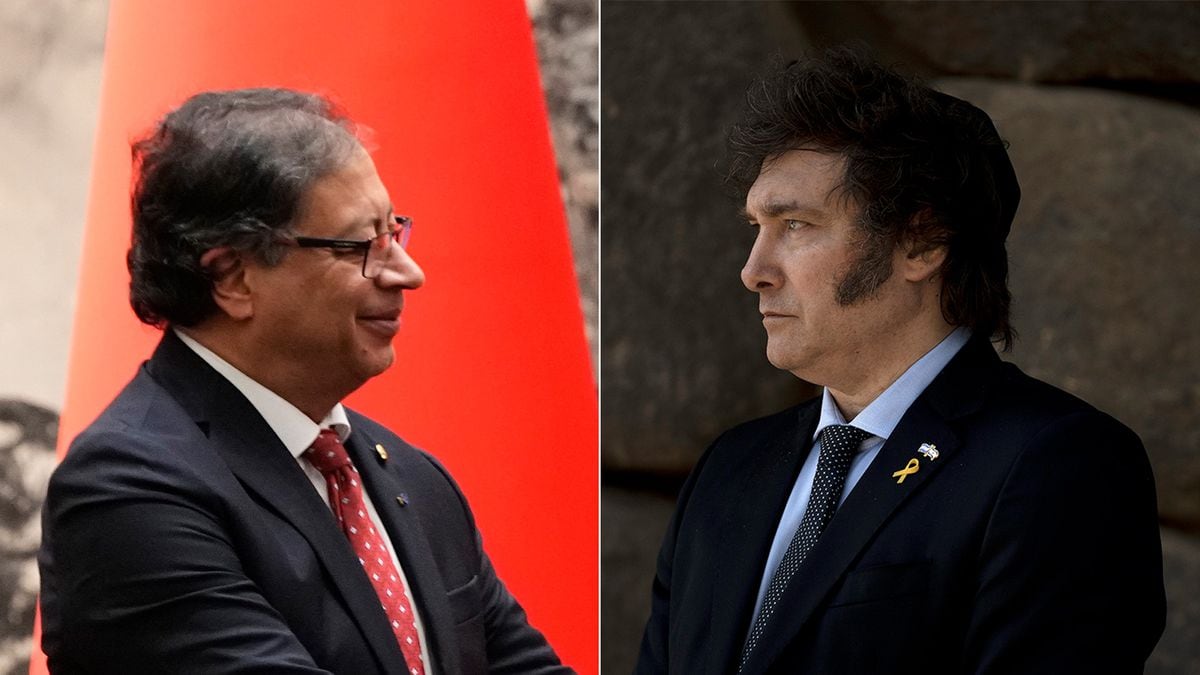



/cloudfront-eu-central-1.images.arcpublishing.com/prisa/KMEYMJKESBAZBE4MRBAM4TGHIQ.jpg)

